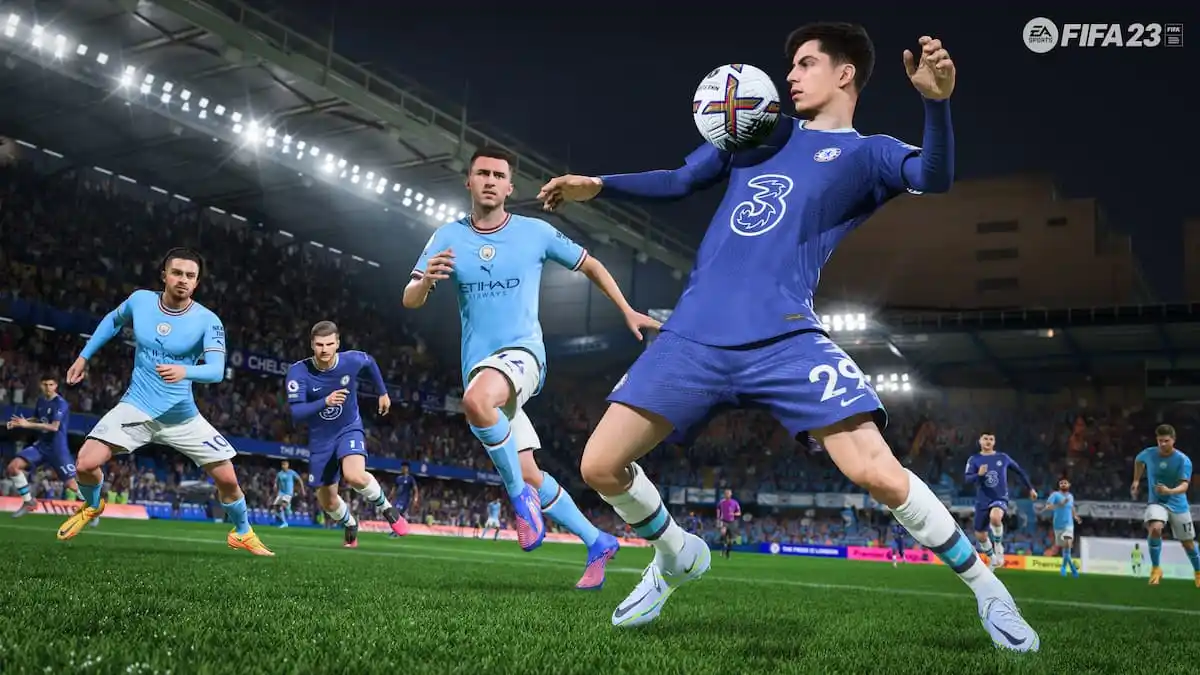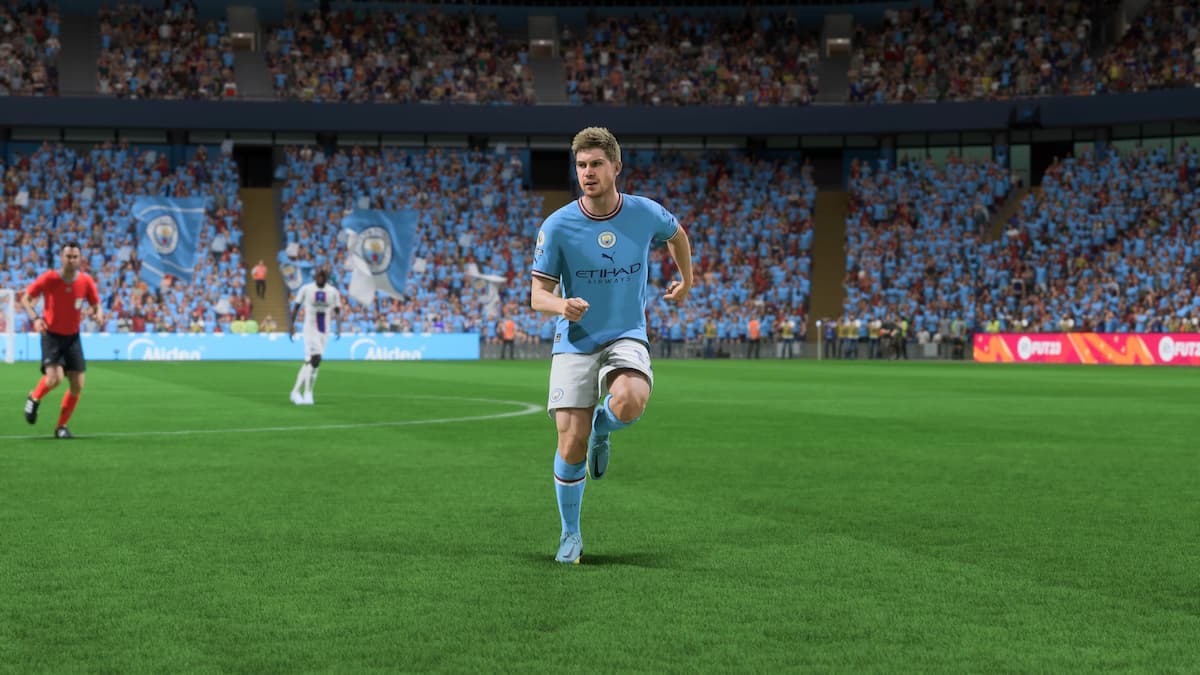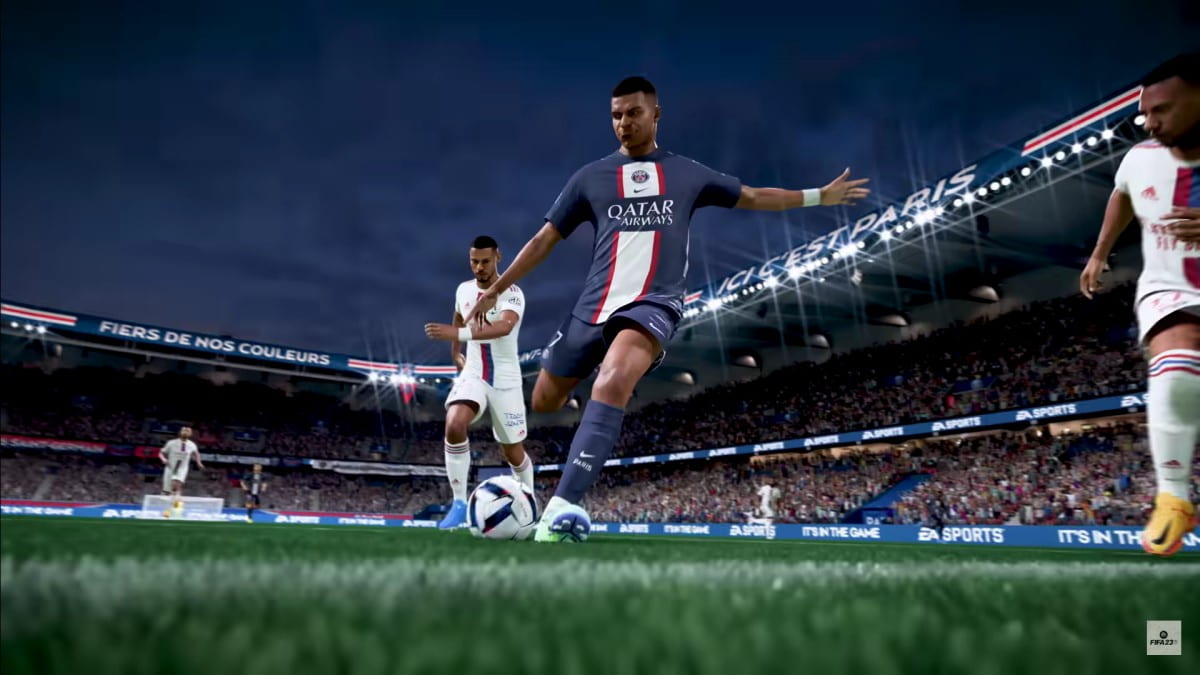In past FIFA games, chemistry is how well your players gel together. You wanted to have players from the same nation or league next to each other to get them playing to their best ability. That often led to players feeling a bit hamstrung in their team-building. For example, if you want to play Kylian Mbappe and Erling Haaland together, you’d need to place specific players next to them, or else they’d lose stats because of their non-existent chemistry. FIFA 23 is changing the game in a major way. Here’s how Chemistry works in FIFA 23.
Related: FIFA 23: All confirmed FUT Heroes
What are Chemistry Points in FIFA 23?
When you boot up FIFA 23 for the first time, you won’t see the familiar lines between players representing their link to each other. Instead, you’ll notice that they have a new icon that contains zero to three diamonds. These diamonds are your Chemistry Points. If you have zero Chemistry Points, you have zero chemistry, with three being the max per player. Importantly, even on zero chemistry, a player’s attributes won’t be negatively affected. If you were really hoping to play Harry Kane as a centerback, we guess this is your year.
The way you build up this chemistry is similar to years past, but with some important changes. No longer do your players have to be next to each other in a formation to link. There’s a new tab on the lefthand side of the Ultimate Team squad screen that tells you how many players you have in your club from each specific league, nation/region, or club. As you add players that match, your overall chemistry will go up.

The number of players required to earn a Chemistry Point varies according to different thresholds for nationality/region, league, and club:
| 1 Chemistry Point | 2 Chemistry Points | 3 Chemistry Points | |
| Nationality/Region | 2 players | 5 players | 8 players |
| League | 3 players | 5 players | 8 players |
| Club | 2 players | 4 players | 7 players |
So, there are various ways for a player to get his maximum 3 Chemistry Points. If 8 players from the same nation, region, or league are in your first team, or 7 from the same club, they’ll all get three Chemistry Points. On the other hand, a player can also get 3 Chemistry Points if he’s in a first team with one other player from the same country/region, one other from the same club, and two others from the same league. And sometimes a team mate can contribute to more than one threshold. For example, if your first team has two players of the same nationality from the same club, then they meet the 1-point thresholds for both nationality and club, and will therefore get 2 Chemistry Points each. One more thing, only players playing in their correct position can contribute to Chemistry. Players playing out of position will neither earn Chemistry points, nor count towards the Chemistry Thresholds.
In previous FIFAs, Icons and Heroes were used to get around some chemistry requirements and they’ll fill a similar role here. Instead of linking to anyone, they will now provide an additional chemistry point in either their nation (Icon) or league (Hero). For example, if you have Ronaldinho in your squad, he will automatically give you two points toward Brazilian chemistry, making it easy to combine him with players like Eder Militao or Alisson.
The final thing to note is that Squad Building Challenges won’t really be changing much. In previous FIFAs, SBCs heavily relied on chemistry and that will still be the case moving forward, but the maximum chemistry will now be 33. The dev team did say that some SBCs might ask for chemistry points per player, which would change the math slightly, but it will still be similar to what you’ve seen in the past.






Published: Sep 30, 2022 04:36 am